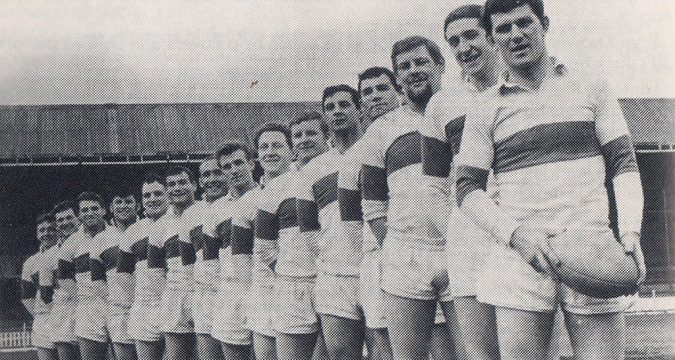 Hull KR have set the pace in Super League this season, but our time machine takes a trip back to the 1960s when Colin Hutton's Robins were setting similar standards.
HULL KR made a flying start to this campaign, recording an impressive tally of league points from the beginning of the season.
In winning 48-0 at Castleford on 19th June, Willie Pe
Hull KR have set the pace in Super League this season, but our time machine takes a trip back to the 1960s when Colin Hutton's Robins were setting similar standards.
HULL KR made a flying start to this campaign, recording an impressive tally of league points from the beginning of the season.
In winning 48-0 at Castleford on 19th June, Willie Pe Time Machine: Hull KR’s previous fast starters of 1966-67
 Hull KR have set the pace in Super League this season, but our time machine takes a trip back to the 1960s when Colin Hutton's Robins were setting similar standards.
HULL KR made a flying start to this campaign, recording an impressive tally of league points from the beginning of the season.
In winning 48-0 at Castleford on 19th June, Willie Pe
Hull KR have set the pace in Super League this season, but our time machine takes a trip back to the 1960s when Colin Hutton's Robins were setting similar standards.
HULL KR made a flying start to this campaign, recording an impressive tally of league points from the beginning of the season.
In winning 48-0 at Castleford on 19th June, Willie Pe 
